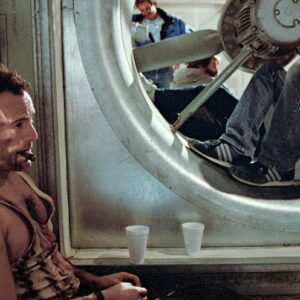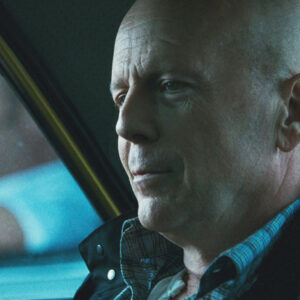The Western genre has long been a staple of American cinema, known for its rugged landscapes, bold heroes, and dramatic tales of justice. However, The Assassination of Jesse James by the Coward Robert Ford (2007), directed by Andrew Dominik, is a film that both deconstructs and elevates the classic genre. At the heart of this revisionist Western is Brad Pitt’s portrayal of Jesse James, a character who is far removed from the typical Western hero. This film, which is as much a meditation on fame, mortality, and cowardice as it is a historical drama, would not have had the same emotional depth without Pitt’s nuanced and complex performance.
In this article, we will explore how Brad Pitt’s portrayal of Jesse James serves as a study in subtlety and internal conflict, how the film subverts the traditional Western narrative, and how the themes of fame, mortality, and human weakness are explored through his character.
Brief Overview of the Film’s Plot and Its Central Themes
The Assassination of Jesse James by the Coward Robert Ford is set in the late 1800s, during the final years of the notorious outlaw Jesse James’ life. The film focuses on the relationship between Jesse James (Brad Pitt) and Robert Ford (Casey Affleck), a young man who idolizes the infamous bank robber but ultimately betrays him. The film opens with the infamous robbery of a train, where Jesse James and his gang are seen as invincible outlaws. However, as the story unfolds, we see Jesse as a man consumed by paranoia, insecurity, and self-awareness, constantly navigating his troubled psyche while grappling with his own legacy.
The central theme of the film revolves around the myth of Jesse James versus the reality of the man. While Jesse James is a legend of the American frontier, feared by many and admired by some, the film presents him not as an untouchable icon but as a fragile, conflicted human being. The film also explores themes of fame, the human condition, and the inevitability of death.
Brad Pitt’s Character: Jesse James, the Myth and the Man
In many ways, Brad Pitt’s portrayal of Jesse James is a reflection of the tension between the myth and the man. Jesse James was not just a criminal; he was a figure of American folklore, a man whose deeds were exaggerated and romanticized over time. He was simultaneously a hero to some and a villain to others, and Pitt’s portrayal captures this duality with remarkable precision.
Pitt’s Jesse James is a man who is deeply aware of his place in the world—a world that has elevated him to mythical status. He carries the burden of being both a legendary outlaw and a deeply flawed individual, and it is in this tension that his performance finds its brilliance. The myth of Jesse James, as presented in the film, is gradually peeled away to reveal a man grappling with his own humanity, fear, and impending death.
While Jesse James is often seen as a symbol of defiance, Pitt’s performance humanizes him, making him relatable and tragically vulnerable. His portrayal is that of a man struggling not only with the external threats surrounding him but also with his internal demons. Jesse James is constantly trying to maintain control over his own life, even as the world around him slips away. Pitt’s performance underscores the fragility of the myth and the human frailty that underpins it.
The Perfection of Brad Pitt’s Portrayal: A Masterclass in Subtlety
Brad Pitt’s performance in The Assassination of Jesse James by the Coward Robert Ford is often regarded as one of the most complex and nuanced performances of his career. The film demands a great deal of emotional depth and restraint from its lead actor, and Pitt delivers in every scene. His portrayal is a masterclass in subtlety, eschewing grandiose gestures for quiet, introspective moments that speak volumes.
Pitt’s Jesse James is not defined by explosive action or physical confrontations. Instead, it is his internal conflict that takes center stage. Throughout the film, Pitt conveys Jesse’s sense of isolation, paranoia, and growing despair through small, almost imperceptible gestures—a slight twitch of his eye, a quiet pause before he speaks, a hesitant movement that reveals his inner turmoil. These moments, though subtle, carry immense emotional weight, and they allow the audience to witness the psychological unraveling of a man who is both a legend and a mortal.
Pitt’s restraint in this role is a stark contrast to the more traditional, larger-than-life Western heroes who dominate the genre. In this way, he redefines the notion of the Western protagonist, offering a more complex and psychologically rich interpretation of the character. Where many Westerns are built around action-driven narratives, this film is one of emotional and psychological exploration, and Pitt’s performance is the perfect vehicle for this kind of storytelling.
Deconstructing the Role: The Myth vs. the Man
One of the most compelling aspects of the film is how it explores the gap between the myth of Jesse James and the reality of the man. In the eyes of the public, Jesse James is a hero—a symbol of rebellion against authority. However, the film presents a more intimate and human portrait of Jesse, one that subverts the typical Western hero archetype.
The myth of Jesse James is largely constructed through the eyes of others, particularly through the eyes of Robert Ford (Casey Affleck), who idolizes him at first but ultimately betrays him. As the film progresses, we see how the legend of Jesse James has been inflated and distorted by time, and how the man behind the myth is far more complicated, fragile, and human than anyone could have imagined.
Brad Pitt’s portrayal emphasizes the tension between these two versions of Jesse James—the larger-than-life outlaw and the broken, paranoid man struggling with his legacy. Through subtle, evocative performances, Pitt shows how the myth of Jesse James is a mask that he wears to protect himself from his own fears and vulnerabilities. As the film nears its conclusion, the mask of the myth slips away entirely, leaving behind only the tragic figure of a man who is consumed by his own fame and the consequences of his actions.
Symbolism and Cinematic Techniques: Enhancing the Performance
Director Andrew Dominik’s cinematic techniques play a vital role in enhancing Brad Pitt’s performance. The film is visually stunning, with its haunting landscapes, dark shadows, and intimate framing of characters. Cinematographer Roger Deakins’s work is particularly noteworthy, as the cinematography often mirrors the psychological tension at the heart of the film.
In many scenes, the camera lingers on Pitt’s face, capturing the minute expressions and subtle shifts in his character’s emotional state. This intimate approach to cinematography allows the audience to witness the full range of Pitt’s performance, drawing them into the internal struggles of Jesse James. The pacing of the film also contributes to the sense of inevitability that surrounds Jesse’s downfall, with long, contemplative scenes that contrast sharply with the sudden bursts of violence.
The use of sound is equally important in reinforcing the psychological depth of the film. The sparse score, composed by Nick Cave and Warren Ellis, complements Pitt’s performance by adding a haunting, almost ethereal quality to the film. The sounds of wind, creaking wood, and distant gunshots further heighten the sense of isolation and mortality that pervades the story. These elements work in harmony to create an atmosphere that is both tense and melancholic, perfectly capturing the internal world of Jesse James.
Themes of Mortality, Fame, and Cowardice
At its core, The Assassination of Jesse James by the Coward Robert Ford is a film about the fragility of fame, the inevitability of death, and the moral ambiguity of its characters. The film examines how fame—particularly the fame of a legendary outlaw—can both elevate and destroy a person. As Jesse James’s life spirals toward its tragic conclusion, Pitt’s performance underscores the emotional weight of these themes.
Pitt’s Jesse James is constantly aware of the fragility of his own existence. His fame, once a source of power and invincibility, becomes a prison, trapping him in a cycle of paranoia and fear. His actions, particularly in the latter part of the film, reveal his desperation to maintain control over his own narrative, even as he faces the inevitable approach of death.
In contrast, Robert Ford, who ultimately betrays Jesse, represents a more cynical view of fame and mortality. His obsession with the myth of Jesse James leads him to kill the man he once idolized, symbolizing the destructive nature of both fame and cowardice. Pitt’s performance allows these themes to resonate on a deeply emotional level, transforming the film from a simple Western into a meditation on the complexities of human nature.
Brad Pitt’s Impact on the Legacy of the Film
Brad Pitt’s performance in The Assassination of Jesse James by the Coward Robert Ford has had a lasting impact on both the film and his own career. The film received critical acclaim upon its release, with many critics praising Pitt’s portrayal of Jesse James as one of the finest performances of his career. His nuanced, restrained acting contributed significantly to the film’s success and helped elevate it beyond the traditional boundaries of the Western genre.
Even today, Pitt’s portrayal of Jesse James is still frequently discussed in film circles. It is regarded as a performance that transcends the typical action hero role, offering a more complex, human portrayal of a character who is both a legend and a man. His work in the film continues to be studied by actors, directors, and critics alike for its subtlety, emotional depth, and psychological complexity.
Conclusion: A Masterful Performance
Brad Pitt’s portrayal of Jesse James in The Assassination of Jesse James by the Coward Robert Ford is a tour de force, a performance that transcends the conventions of the Western genre. Through his subtle, nuanced acting, Pitt brings depth and complexity to a character who is often reduced to a simple folk hero. His portrayal captures the fragility of the myth and the vulnerability of the man behind it, creating a tragic and unforgettable figure.
This performance stands as one of the highlights of Brad Pitt’s illustrious career, a testament to his range as an actor and his ability to bring emotional depth to even the most iconic of characters. The Assassination of Jesse James by the Coward Robert Ford may be a film about death, fame, and betrayal, but it is also a film about the human condition—and Brad Pitt’s portrayal of Jesse James is the heart and soul of it all.





